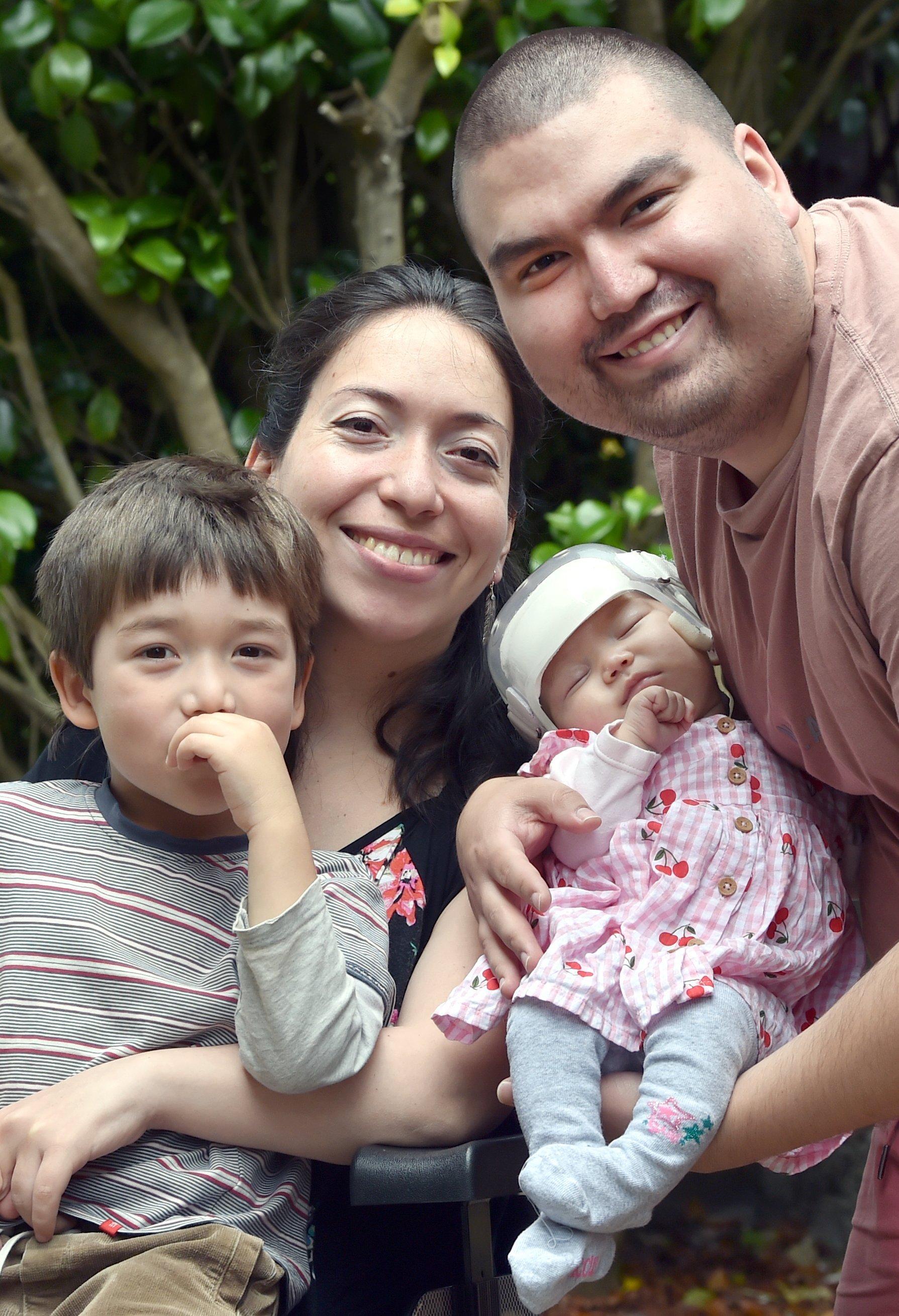A Dunedin newborn baby with a rare skull condition has a brighter future thanks to an "international joint effort" which helped her get to the United States for urgent surgery.
Amelia Duran-Araya, now 9 weeks old, was born with a prematurely fused skull threatening her brain development as she grew.
Amelia’s father, Benjamin Duran-Vinet, said "an international joint effort" spanning three countries enabled her to get the treatment needed for her craniosynostosis in time.
"She’s doing great. She’s doing excellent. She’s truly a warrior," he said.

This left a window of just days to obtain a passport in Chile, as without a resident parent she was not eligible for a New Zealand passport.
The family of four arrived in Chile on New Year’s Eve, Amelia travelling on an Chilean emergency passport that could only be used to enter that country.
Mr Duran-Vinet said after appealing to the Chilean government, the passport was issued in just three days.
"It’s [usually] 100 business days, which is five months, so they truly sped up the process for us because they saw the urgency of the neurosurgery."
While the journey also had an unexpected setback when the electric wheelchair belonging to Amelia’s mother, Dr Karla Araya-Castro, who has cerebral palsy, was broken by the airline at Santiago airport, the family made it to the United States as hoped.
People there stepped in to help, and a local television station also reported on their situation.
Expecting to use public transport to reach the hospital and other clinics, they were pleasantly surprised when a donor instead provided accessible transport for all their travel.
Accommodation was sorted by Amelia’s surgeon, who organised for them to stay with a family from his church.
Dr Araya-Castro said Amelia only lost 10ml of blood during the surgery to remove the fused portion of her skull.
It was one of the benefits of the minimally invasive endoscopic approach not available in New Zealand.
The other benefit was how soon it could be carried out.
In the first 18 months of a baby’s life, the skull grew rapidly — about 2cm per month, she said.
"That’s why it was so important to remove the fused bone, because now the head [has] room for the brain to grow normally and that was our major concern.
"We’re really happy that she finally had that surgery, and we were told there were signs of intracranial pressure when we got there, so we were doing the right call."
Helmet therapy was now under way to stop Amelia’s skull growing back to its former shape.
Snowstorms caused the first helmet to be stuck in Memphis, and the family had to delay their flights home while they waited for it to arrive.
They would have been delayed a second time, but a coincidental meeting with a senior FedEx worker meant the helmet was sent on as emergency medical shipping.
Amelia would need three more helmets over the next 18 months, although these would be provided by a North Island clinic.
The couple appreciated all the support they received in recent weeks, Mr Duran-Vinet said.
"It was a team effort of many, many people, of people that we know, people that we don’t know.
"We are truly, truly thankful of everything that they did for us."
Donations to their GiveSendGo fundraising page now totalled over $20,000 and had covered costs for all the family’s flights.
The total expenses were about $65,000, and the page remained open while Amelia continued helmet therapy.











